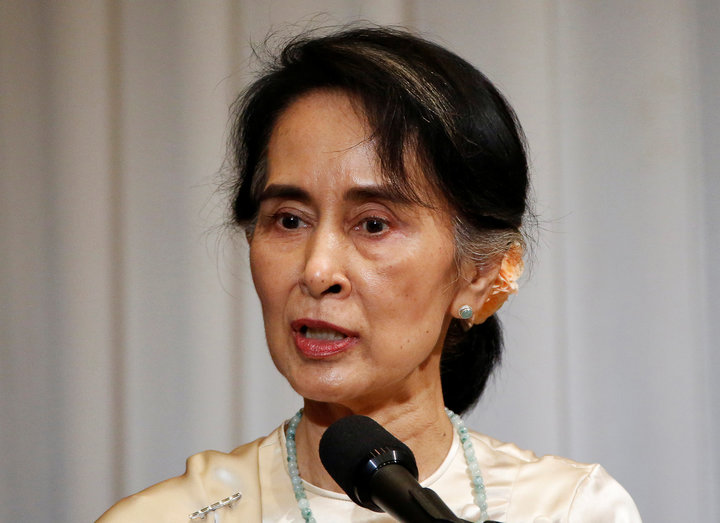"I don't think there is ethnic cleaning going on," Suu Kyi told the BBC in an interview when asked if she would be remembered as the Nobel Peace Prize winner who ignored ethnic cleansing in her own country.
"I think ethnic cleansing is too strong an expression to use for what is happening," said Suu Kyi who is facing international criticism for her government's handling of a crisis in the Muslim-majority Rakhine region.
Attacks on Myanmar border guard posts in October last year by a previously unknown insurgent group ignited the biggest crisis of Suu Kyi's year in power, with more than 75,000 Rohingya fleeing to Bangladesh in the ensuing army crackdown.
A United Nations report issued earlier this year said Myanmar's security forces had committed mass killings and gang rapes against Rohingya which may amount to crimes against humanity.
The military has denied the accusations, saying it was engaged in a legitimate counterinsurgency operation.
"What we are trying to go for is reconciliation not condemnation," Suu Kyi told the BBC. "It is Muslims killing Muslims as well."
Rakhine has been the scene of communal violence at the hands of Buddhist extremists since 2012.
Hundreds of people have been killed and tens of thousands have been forced from their homes to live in squalid camps in dire conditions in Myanmar, Thailand, Malaysia and Indonesia.
The government denies full citizenship to the 1.1 million-strong Rohingya population, branding them illegal immigrants from Bangladesh. Rohingya Muslims are believed to be a community of ancient lineage in Myanmar.
According to the UN, the Rohingya Muslims are one of the most persecuted minorities in the world.
/257
source : Reuters
Thursday
6 April 2017
12:29:56 PM
822225

(AhlulBayt News Agency) - Myanmar leader Aung San Suu Kyi said ethnic cleansing was too strong a term to describe what was happening in the Muslim-majority Rakhine region, the BBC reported on Wednesday.
